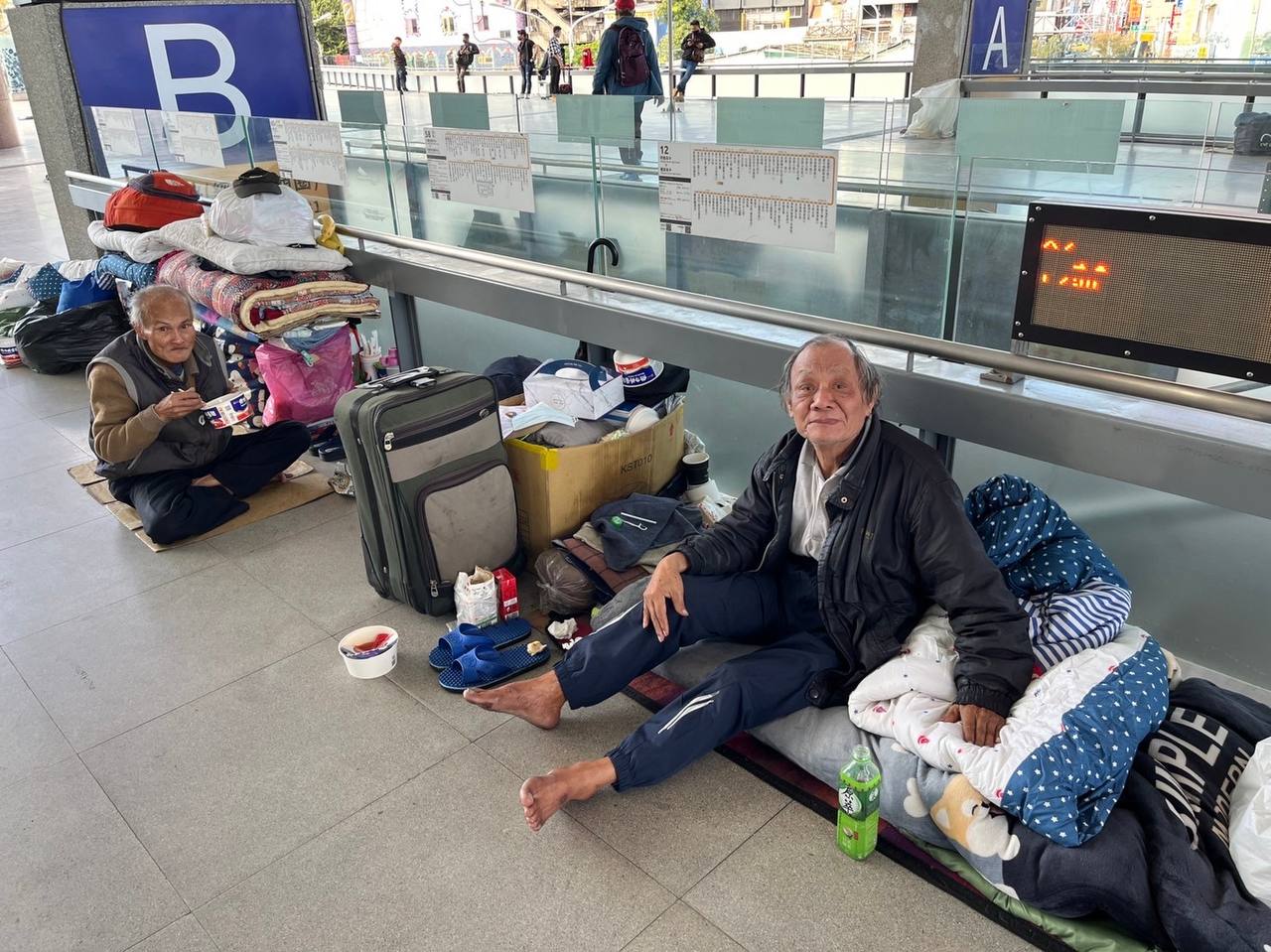Photo of Paschal Madukwa’s unhoused friends at the Taichung Train Station enjoying their meals courtesy of Paschal Madukwa.
Sixth Sunday of Easter
Maryknoll Seminarian Paschal Madukwa
May 25, 2025
Acts 15:1-2, 22-29 | Rv 21:10-14, 22-23 | Jn 14:23-29
In today’s Gospel, as Jesus bids farewell to His disciples, he reassures them: “Whoever loves me will keep my word, and my Father will love them….”
These words were said many centuries ago. Do they still speak to us today? And how can we keep His word? In the Gospel for the Fifth Sunday of Easter, Jesus tells us how to keep His word by way of a new commandment: “Love one another. As I have loved you, so you also should love one another.” Not only does Jesus leave us this message of love, but he further offers His peace to us, a peace that our world cannot give. And he promises that the Holy Spirit will strengthen, teach, remind, and help us to understand it.
In the first reading, we see the confusion in the Church’s teachings in her early days. The Church faces difficulties finding space for the gentiles, who do not follow the Mosaic law. Here, the apostles and elders come to a consensus in the Council of Jerusalem, approving the inclusion of all people from diverse backgrounds in the Church. They will not be required to convert to Judaism, thus establishing Catholic universality. To be sure, they will be asked to avoid practices that would offend the sensibilities of Jews. This is something we learn in intercultural living; it requires accommodating everyone.
In the Bible, peace is not only the absence of conflict, but also a restoration or completion. Both ‘shalom’ in Hebrew and ‘eirēnē’ in Greek are nouns used for ‘peace’. Here, Jesus offers his life to restore the broken relationship between humans and our creator. Moreover, the selfless love (‘agápē’) commanded of us entails that we treat others the same way we would want to be treated, expecting nothing in return. As we live in our contemporary, broken, and polarized world, what does this Gospel message say to us?
Having lived in Taiwan for the past two years, I know how it feels to be a foreigner — never quite belonging. But the feeling of being out of place is also a humbling reminder that we were not created for this world alone. This is not our final home.
Through my ministry with homeless friends, I have had an opportunity to hear their life experiences. Some ended up on the streets not because of drug addiction or unemployment, but simply due to shame, loneliness, and a sense of incomplete belonging. They feel like foreigners in their own families and communities. For any number of reasons, whether cultural, biological, or religious, the families and community members have contributed to pushing them to the margins of society, treating them as outcasts.
All over the world, we are aware of people whom we have ignored, judged, and pushed away from our communities, religions, and countries simply because they do not conform to our worldly standards. And so, we act like the early Christians who disparaged and shunned the gentiles. No matter how we try to rationalize our actions, deep down we know that we are betraying the Gospel when we do so.
In this Easter Season, Jesus is asking us to actively ‘shalom’ and ‘eirēnē’ the broken pieces and ‘agápē’ all who are living at the margins. And by doing so, we are actively responding to God’s commandments, which the Prophet Micah enunciates: “To act justly, love mercy, and walk humbly with your God.”
Photo of Paschal Madukwa’s unhoused friends at the Taichung Train Station enjoying their meals courtesy of Paschal Madukwa.

